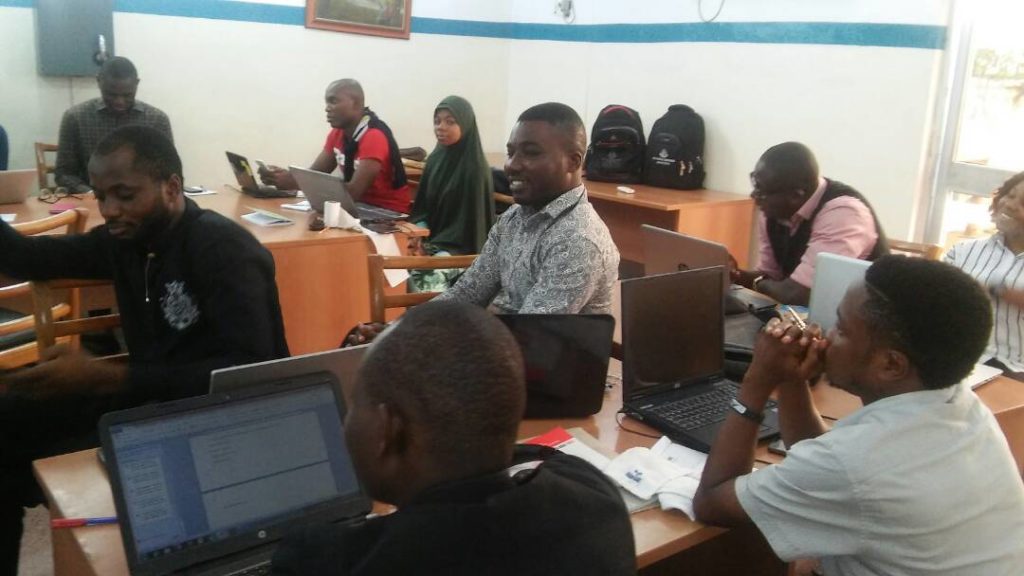By Robert Egbe
Journalists have been urged to rethink the content and tools with which they serve their audiences.
Media experts made the call at the weekend during a one-day training organised by the Journalism Clinic in Lagos with the theme Rethinking Content
They urged journalists to embrace multimedia skills through which they can meet the rapidly changing information needs of modern audiences and catch up with international best practices.
The special training programme for media organisations, editors, reporters and media sponsors was facilitated by Journalism Clinic founder, Taiwo Obe.
Co-facilitators included Assistant Director, Programmes, Federal Radio Corporation of Nigeria’s Lagos Operation, Funke-Treasure Durodola; British Broadcasting Corporation (BBC) Pidgin English Correspondent and podcaster, Ruona Meyer and Managing Editor WakaAbout.Online, Pelu Awofeso.
They identified the rise of social media as a source of and medium for news dissemination and urged journalists to use the disruptive effects of internet and digital technology to their advantage.
Obe, a multimedia specialist, noted that journalists need adequate skills that will make their content resonate with and appeal to readers.
“Your content must connect with your audience. It must arouse their senses, provide solutions. Journalism must also help to heal society.
“Stories are everywhere, but this is about doing it in a different way. Podcast, social media and digital technology skills are vital for practitioners to strive in the modern era of journalism, ” he said.
While noting that there is news everywhere both in the virtual and the real world, Obe said what readers want is something extraordinary as readers now embrace visuals, skits and podcasts.
“So, who says mainstream media cannot cue in podcasts in their reports online, who says sharing and embedding of socio media links is restricted?”
Meyer, who anchored the session on Podcast, identified its unique advantages in journalists’ quest to source for news, capture and retain the audience’s attention.
Meyer said: “Podcasts are excellent for sensitive stories.”
She explained that sources might be more willing to speak to a journalist for a podcast broadcast because of its guarantee of anonymity.
She gave a few editing tips, including the awareness that “the average human speaks three words per second.”
Meyer added: “You must be consistent, e.g. twice a week for news. Look for areas that audio will serve best. Fill a need, choose a niche.”
Awofeso identified several key factors journalists must consider while creating content for their audience.
“Focus on content that connects people. What challenges are your audience facing? What are their motivations? What do they like to interact with? What does your audience care about?”
Awofeso noted the roles of Twitter, Instagram, Facebook and Google in “oiling the wheels of social media tools.
Durodola, an award-winning broadcaster, urged journalists writing for radio to remember several “important things.”
“Radio is a secondary medium. Capture attention, keep it and don’t be ambiguous. It is a ‘spoken’ medium – what we have written becomes sound as soon as it leaves our lips. Be clear and interesting.”

